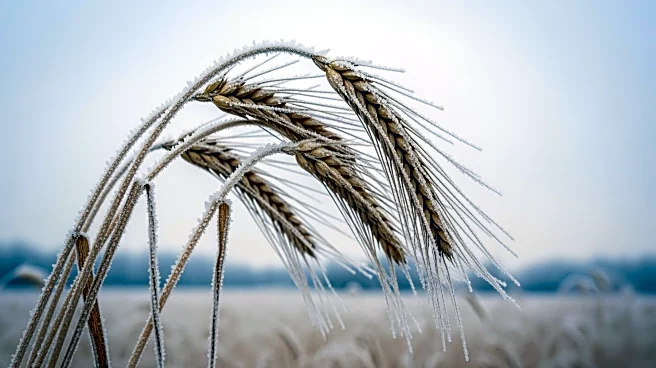Rapid Read • 9 min read
Chinese researchers have conducted a comprehensive study on the integration of artificial intelligence (AI) in agricultural equipment, highlighting significant advancements in efficiency, precision, and sustainability. Published in the journal Agriculture, the study reviews AI-driven solutions in agricultural machinery, focusing on object detection, autonomous navigation, and precision control. AI technologies are transforming traditional farming operations by enabling machines to identify operational signals, classify conditions, and execute real-time actions. Autonomous agricultural vehicles can now navigate efficiently, avoid obstacles, and coordinate actions without human intervention. Additionally, machine learning integrated with intelligent sensing tools enhances state perception, allowing machines to interpret data on seedling health, soil condition, and crop readiness. These advancements are supported by digital twin technology, edge computing, and big data analytics, which collectively form a scalable smart farming ecosystem.
AD
The integration of AI in agriculture represents a significant shift towards more sustainable and efficient farming practices. By improving precision and reducing resource wastage, AI technologies can help farmers maximize output while minimizing environmental impact. The ability to make informed decisions based on real-time data enhances the quality and timing of farming interventions, potentially leading to increased crop yields and reduced costs. This technological evolution is crucial for addressing global food security challenges and promoting sustainable agricultural practices. However, the widespread adoption of AI in agriculture faces challenges such as the scarcity of high-quality data, adaptation to complex field environments, and energy consumption. Overcoming these barriers is essential for realizing the full potential of AI-driven agriculture.
Future directions for AI in agriculture include developing lightweight algorithms optimized for embedded systems, increasing investment in agricultural AI datasets, and fostering international collaboration to establish open standards for smart farming technologies. The convergence of AI with blockchain for traceability and cybersecurity is also identified as a potential frontier. Addressing challenges such as data scarcity, field environment adaptation, and energy consumption will be critical for expanding the use of AI in agriculture. Continued research and development in these areas will help ensure that AI technologies can be effectively integrated into diverse agricultural contexts, enhancing sustainability and efficiency on a global scale.
The ethical and cultural implications of AI in agriculture are significant, as these technologies could reshape traditional farming practices and impact rural communities. Ensuring equitable access to AI-driven solutions and addressing potential job displacement are important considerations. Additionally, the integration of AI with blockchain could enhance transparency and traceability in agricultural supply chains, promoting consumer trust and food safety. Long-term shifts in agricultural practices driven by AI could lead to more resilient food systems, capable of adapting to climate change and other global challenges.
AD
More Stories You Might Enjoy












